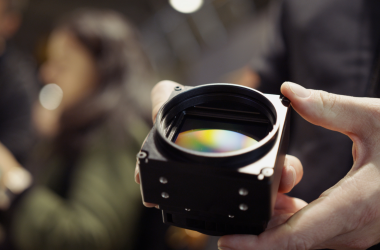Last Updated on: 22nd November 2023, 12:20 am
It’s true that the CBD industry is an exciting place to be right now. As more individuals turn to natural methods to enhance their physical and mental health, CBD products have skyrocketed in popularity. In case you’re an entrepreneur looking to break into the CBD market, there’s a key question to ask before you start: Do you partner with an existing brand or create your brand?
Across most industries, it’s unusual for large brands to produce their products in-house. Instead, companies understand the power of perfecting their trade. In the CBD industry, that might be growing cannabis, extracting CBD and manufacturing CBD products, or creating brands and focusing on sales and marketing.
We’d guess the majority are more interested in the latter since the other options require more specialist knowledge and equipment. In fact, the technical aspects of producing CBD products can be offputting for many uninitiated. Luckily, quality white-label or private label manufacturers will be experts in this department and can also provide most regulatory and quality documents and certificates. When you’re looking for a third party to produce your product line, there are two options to consider – white label CBD and private label CBD. Here we’ll help you decide which one’s right for you.
What Are White Label CBD Products?
As the name suggests, white labelling involves a company providing a product as a blank canvas, ready for the purchasing company to apply their own branding. An everyday example of white labelling is grocery store own-brand products that are commonly produced via a white labelling service. As well as branding, the purchasing company usually has creative license over the artwork, pricing and marketing.
If you want to get involved in the booming CBD industry quickly and on a budget, white label CBD is a good option. Here we look at some key points to help you decide if it’s right for you.
Cost
The purchasing company can start their business quickly and at a relatively low cost. White labelling companies can use products they already have in stock, which means they can supply small quantities of goods and at a reasonable price. One downside is that some white-label brands have strict requirements when it comes to setting your product price point.
Timings
Leading on from the point above, since white labelling manufacturers have pre-existing stock, they can often deliver within short lead times. It’s the best option for brands looking to launch their product quickly and efficiently.
Production & Knowledge
It’s also the simplest way of entering the CBD industry as white label manufacturers take the stress out of producing the packaging, printing and labelling as per the client’s specification. A reputable white label CBD manufacturer will take care of testing, formulation and ensuring the product comes with the right paperwork and certifications. The client can take advantage of the manufacturer’s in-house product development expertise.
Biggest Advantage
The purchasing company can start their business quickly and at a relatively low cost. It’s the best option for those looking to launch their product at a fast pace.
Biggest Downside
Generic products might struggle to stand out in a crowded marketplace, with other companies perhaps selling products with similar compositions, and only labels or brands may differ. There may also be a limited choice of products offered by the CBD manufacturer with little room for innovation or expanding the product range.
What Are Private Label CBD Products?
Private label manufacturing shares many similarities with white labelling, the key difference being that the manufacturer will produce the products according to the client’s specifications.
In other words, rather than labelling an existing product, you create your own unique formulation. The key benefit of this, of course, is it can help differentiate your product in a crowded market. Here are some further pros and cons of using a private label company.
Cost
Formulating your own private-label CBD product can sometimes get expensive. Costs in the early stages can be high and there may be higher margins in the long run due to high MOQs. Unlike white labelling, the manufacturer needs to sell the entire batch to the purchasing client. However, a big benefit of private labelling your own CBD products is that you can set your own price point and won’t need to worry about royalty or licensing fees.
Timings
Product delivery timelines are generally longer as the products are being made from scratch and new items need to be approved by the relevant regulatory authorities before reaching the market.
Production & Knowledge
If developing your own product, you’ll need to do a lot of research and have specific CBD expertise. New products also need to be tested and certified by the relevant regulatory authorities.
Biggest Advantage
You have more creative freedom to formulate a unique product. With USPs that set it apart from other brands, you can market it effectively and build brand loyalty.
Biggest Downside
The costs and risks are higher and timelines tend to be longer.
So, Which is Better for your Business?
As you can see, both options have their merits, so it all depends on what your goals are. Selling an existing, reputable product is a great way to start a CBD business quickly and on a budget. Private labelling, on the other hand, offers you more autonomy and an opportunity to create something that is unique. The cost can be a lot higher with private label products, but with greater risk can come greater rewards.
But who says you have to choose? White label CBD products can be an excellent way to get your business off the ground, and later on, you can add a private label product to your range when you have an existing customer base. We hope this healthy debate between white labelling and private labelling has helped you weigh up the cost, effort and risk for you to experience success in this challenging but rewarding industry.






